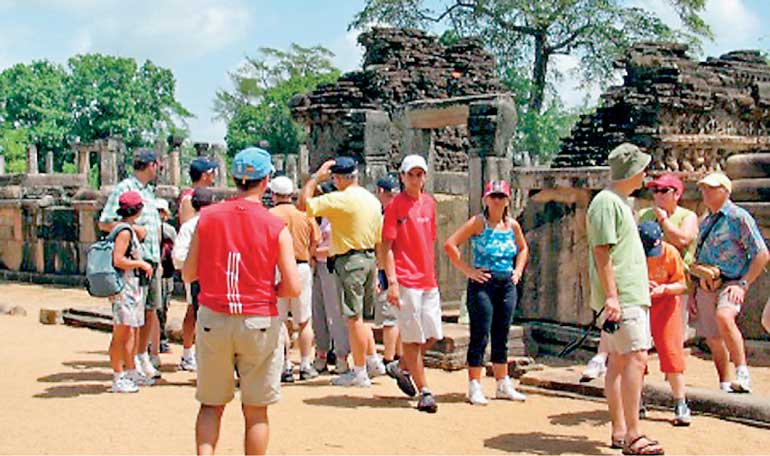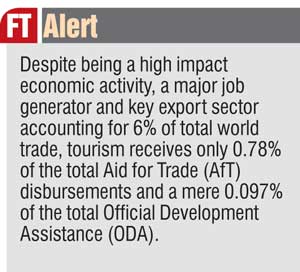Monday Feb 23, 2026
Monday Feb 23, 2026
Friday, 17 July 2015 00:37 - - {{hitsCtrl.values.hits}}

The UNWTO has called for higher support for tourism in international financing for development flows to maximise the sector´s contribution to sustainable development across the globe.
The recommendation was made ahead of the third International Conference on Financing for Development which took place in Addis Ababa, Ethiopia, between 13 and 16 July.
Tourism’s underrepresentation in international financing for development flows remains a critical hurdle to overcome in order to fully deploy its development potential.
Despite being a high impact economic activity, a major job generator and key export sector accounting for 6% of total world trade, tourism receives only 0.78% of the total Aid for Trade (AfT) disbursements and a mere 0.097% of the total Official Development Assistance (ODA).
As world leaders gathered at the third International Conference on Financing for Development, UNWTO Secretary-General Taleb Rifai recalled that tourism has been identified by half of the world´s Least Developed Countries (LDCs) as a priority instrument for poverty reduction.
“For an increasing number of developing countries tourism means jobs, poverty eradication, community development, and the protection of natural and cultural heritage. Yet, in order to maximize tourism’s contribution to the development objectives, it is critical to address the disparity between the sector´s capacity to foster development and the low priority it has been given so far in terms of financial support in the development cooperation agenda,” said Rifai.
Tourism’s cross-cutting nature and multiple links to other economic sectors positions it as an effective multiplier in global development strategies as tourism often provides one of the few competitive options for developing countries to take part in the global economy.
The sector is crucial for LDCs – in 2013, the 49 LDC countries received 24 million international overnight visitors and earned US$ 18 billion from international tourism.
This represented 8% of total exports of goods and services of LDCs, and 12% for the non-oil exporters among them. Tourism was in fact one of the main contributors behind the graduation of Botswana, The Maldives and Cabo Verde from their previous LDC status.
“2015 is the year for action. As we move forward to adopt a new sustainable development agenda, we have a unique opportunity to raise the level of assistance in tourism to further harness its vast potential for stimulating green growth and inclusive development worldwide, particularly for the countries most in need,” Rifai added.
Over recent years, tourism’s ability and potential to drive sustainable development has been increasingly recognised – tourism is identified by half of the world´s LDCs as a priority instrument for poverty reduction and is one of the six initial programs of the 10-Year Framework of Programs on Sustainable Consumption and Production Patterns (10YFP) designed to accelerate the shift towards sustainable consumption and production worldwide – yet the levels of financing for development in tourism are still comparatively low.
According to the June 2015 STR Global Construction Pipeline Report, there are 2,363 hotels totalling 554,532 rooms Under Contract in the Asia Pacific region.
This represents a 6.7% increase in rooms Under Contract compared with June 2014, and a 0.6% year-on-year increase in rooms under construction.
The region reported 260,215 rooms in 1,031 hotels under construction for the month.
Among the countries in the region, China reported the most rooms under construction with 145,167 in 452 hotels.
Three other countries reported more than 10,000 rooms under construction: Indonesia (27,243 rooms in 148 hotels); India (26,159 rooms in 158 hotels); and Malaysia (10,806 rooms in 39 hotels).
The Under Contract data includes projects in the In Construction, Final Planning and Planning stages but does not include projects in the Unconfirmed stage.